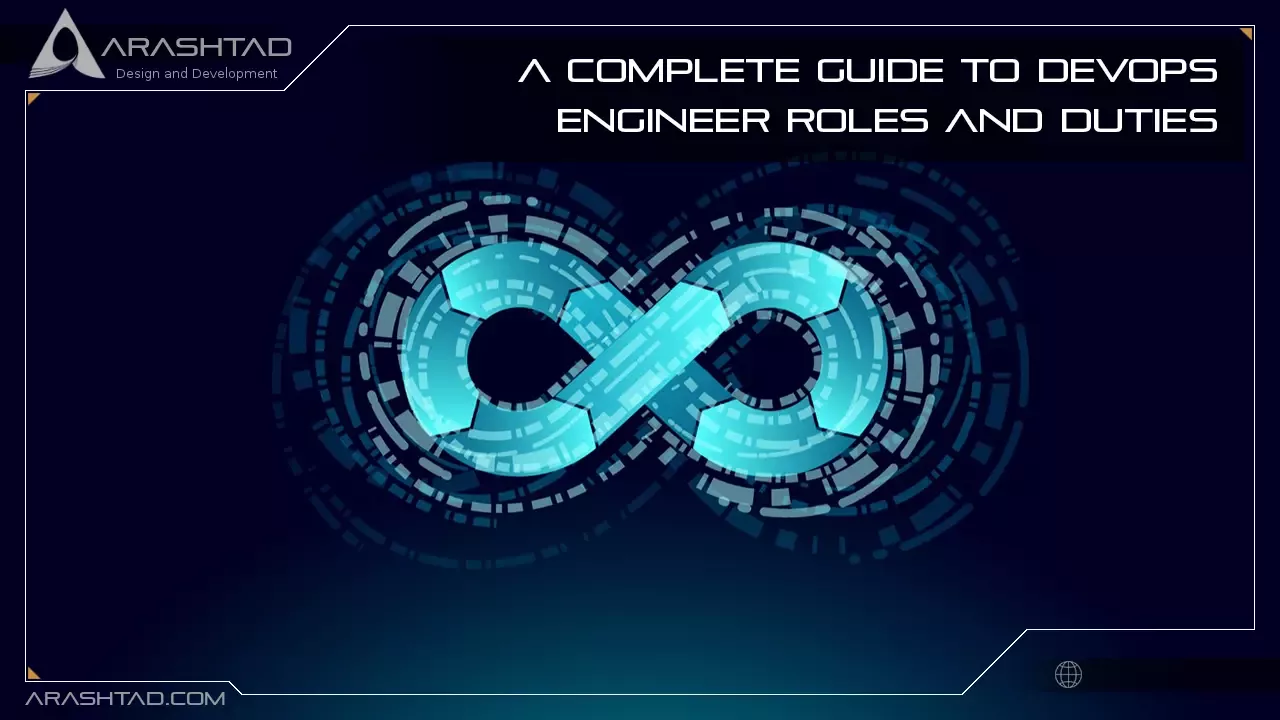DevOps Engineer Job Description: Roles and Responsibilities
In DevOps, software developers, system operators (SysOps), and other production IT personnel work together to oversee code releases and deployments. To foster a collaborative and holistic environment, someone with relevant hard and soft skills is needed to overcome traditional barriers between software development, quality assurance, testing, and IT operations. This article explains what a DevOps Engineer is, its Roles and Responsibilities, DevOps Engineer Skills, and salary.
What Is a DevOps Engineer?
DevOps engineers are IT generalists with a wide range of experience in development and operations, including coding, infrastructure management, system administration, and DevOps toolchains. Additionally, DevOps experts must have interpersonal skills since they work across company silos to foster a collaborative work environment. Besides having a strong understanding of common system architecture, provisioning, and administration, DevOps experts should also have experience with traditional developer toolsets and practices, including source control, code reviews, writing unit tests, and understanding agile principles.
DevOps Roles and Responsibilities
It is common for DevOps engineers to do some combination of release engineering, infrastructure provisioning and management, security, and DevOps advocacy at their respective organizations. A release engineer builds and deploys application code. Many variables influence the tools and processes used, such as the code’s language, how much of the pipeline is automated, and whether the production infrastructure is on-premises or in the cloud. An engineer responsible for release engineering may have to select, provision, and maintain CI/CD tools and write and maintain custom build/deploy scripts.
Managing servers, storage, and networking resources required for applications is part of infrastructure provisioning and system administration. It may involve managing physical servers, storage devices, switches, and virtualization software in a data center for organizations with on-premise resources. It is usually necessary to provision and manage virtual instances of the same components in a hybrid or entirely cloud-based organization.
DevOps advocacy is often undervalued or ignored entirely but is arguably the most important role of a DevOps expert. The shift to a DevOps culture can be disruptive and confusing for engineering team members. The DevOps expert is responsible for evangelizing and educating the DevOps way across the organization as the DevOps subject matter expert.
Top DevOps Engineer Skills

DevOps experts need various technical skills depending on the team structure, technologies, and toolsets in use. However, they must possess strong communication and collaboration skills. In addition, DevOps experts need to understand all the components of a delivery pipeline and the pros and cons of the available tools and services.
1. The Importance of Communication and Collaboration
A DevOps engineer must communicate and collaborate effectively with teams, managers, and customers. These so-called “soft skills” are often overlooked and undervalued, yet the success of DevOps relies heavily on feedback from across the entire value stream.
2. The Administration of Systems
DevOps experts have experience with system administration, such as provisioning and managing servers, deploying databases, monitoring security, patching systems, and managing internal and external network connectivity.
3. Having Experience with DevOps Tools
Using the right tools is integral to DevOps practices, so the DevOps engineer must be proficient in various tools. The tools range from infrastructure and building to monitoring and operating a product.
4. Management of Configurations
One or more configuration management tools, such as Chef, Puppet, or Ansible, will often be expected to be used by DevOps experts. Several organizations have used these or similar tools to automate system administration tasks like deploying new systems or applying security patches.
5. Containers and Container Orchestration
As a result of containerization, popularized by Docker, application code and runtime environment are bundled in the same image, reducing the need for configuration management tools. At the same time, managing containers presents its own challenges, and the ability to use tools called “container orchestrators” (such as Docker Swarm or Kubernetes) becomes a necessary skill for the DevOps engineer.
6. Integrating and Deploying Continuously
DevOps approaches to software development include continuous integration and continuous delivery (CI/CD), which are supported by many tools. The main function of any CI/CD tool or set of tools is to automate the process of building, testing, and deploying software. Typically, DevOps experts need experience configuring and deploying CI/CD tools and working closely with the rest of the development team to ensure these tools are effectively used.
7. Provisioning and Architecture of the System
The skills of a DevOps expert include designing, provisioning, and managing computer ecosystems, whether they are on-premise or in the cloud. Infrastructure as Code (IaC) is an IT management process that applies DevOps software development best practices to cloud infrastructure management. DevOps experts should understand how Amazon Web Services (AWS), AWS CloudFormation, or Terraform can be used to model system infrastructure in the cloud.
8. Coding and Scripting Experience
A traditional system administrator is familiar with writing shell scripts to automate repetitive tasks. A DevOps engineer should go beyond writing automation scripts and understand advanced software development practices and how to implement agile development practices such as code reviews and using source control.
9. Developing Collaborative Management Skills
Regardless of the organizational structure, cross-team collaboration is a fundamental component of an effective DevOps strategy. Whether the engineering team is divided solely by roles or separate teams for feature development, quality assurance, DevOps, etc., the DevOps expert should work across the organization as a coach and co-worker with many different people. An important benefit of DevOps is, for example, the ability to provide developers with faster feedback. A DevOps expert will often have to collaborate with QA (whether they are manual testers or developers who write test automation) to improve the speed, efficacy, and output of testing methodologies. In addition, developers may need help from DevOps experts when building and deploying application code.
DevOps Engineer Salary
A DevOps Engineer in the US earns an average salary of $129,540. Average additional cash compensation of $15,963. And an average total compensation of $145,503. As well as the scope of the actual job functions, salary can vary by location. DevOps salaries are currently higher than those for traditional IT roles, such as software engineers, developers, hardware engineers, and project managers. The dramatic increase in DevOps salaries has begun to slow and level off as DevOps becomes an integral part of modern enterprises.
Conclusion
The implementation of DevOps often involves an organizational overhaul when an organization’s development and operations are siloed. You need the right people, culture, and tools to implement DevOps successfully. Yet one of the main obstacles to implementing DevOps is employees’ need for more skills. A key role in implementing a DevOps restructuring is the DevOps engineer, who must possess both development and operations skills and the ability to bridge divides between siloed teams.

